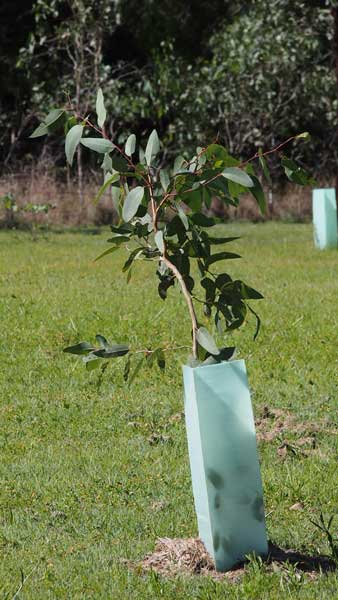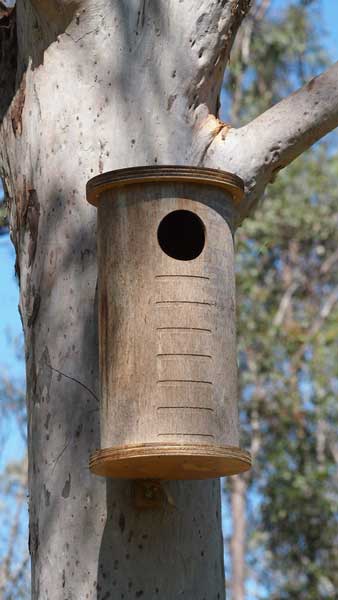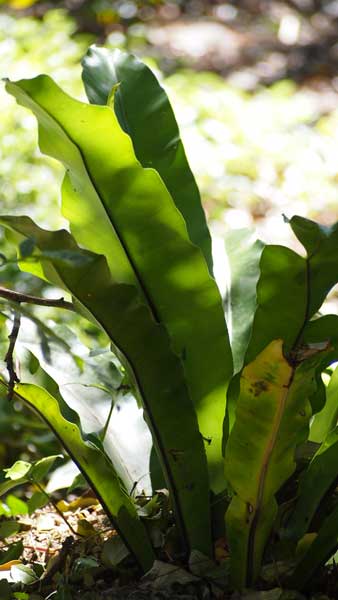Victor and Michele Bales have been Land for Wildlife members for just over 10 years and have been living on their property for 35 years. Their property is situated in Pine Mountain, Ipswich and is adjacent to Sandy Creek in the mid-Brisbane River Catchment. It is believed that around 130 years ago the land was used as a vineyard and later for growing sweet potatoes, more recently for grazing cattle and horses. Horses were a total disaster during dry periods, as they grazed the grass right back to bare soil and ringbarked native trees.
During the years I have worked with Victor and Michele, I have observed significant changes in the ecological values on their property. Since retiring, Victor has been able to spend a lot more time fast tracking restoration outcomes on their property. The removal of weeds and restoring the natural values using local native plant species has been a priority for the Bales.

Victor and Michele Bales.
Victor has done exceptional work restoring a gully bed using native riparian plants. A diverse selection of species were chosen for different purposes. We started with structural species for the purpose of mitigating erosion, controlling velocity as well as reducing the effects of channelling. Such species included Lomandra sp., Melaleuca sp. and Casuarina sp. Bringing back wildlife and enhancing biodiversity is the next stage for the property.
Victor is one of the most determined landholders I have come across, his passion and rationale for conservation is encouraging. Piles of removed Climbing Asparagus (Asparagus africanus) continue to grow in size as Victor laboriously hand-removes Asparagus crowns. Cobbler’s Pegs and undesirable grasses are sprayed out, making room for native plantings. Next on the hit list is Balloon Vine (Cardiospermum grandiflorum).
Victor liked the idea of seeing more butterflies, small birds and invertebrates, so native plants such as Dianella sp., Eucalyptus sp. native grasses and Acacia sp. were planted and large hollow logs were left to provide refuge for reptiles and small mammals. Hoop Pine seedlings have naturally generated in their rainforest area, which is very exciting indeed.
Over the years of living at Pine Mountain, Victor and Michele’s vision for their property has changed. Lessons were learnt from initial experimental planting of trees which proved to be unsuitable for the soil type. Restoring pasture, building a dam and planting trees to create a screen and filter dust from the road were priorities. 
made and installed by Victor.
Over time, their values have become driven by the environment and providing a refuge for native wildlife.
“If possible, talk to older locals about your property. Look at the environmental history of your land and learn from previous mistakes made. Plan well, plant wisely and use tree protectors for new trees. Planting should improve your soil, its water holding capacity and provide food and shelter for the wildlife. Never remove old dead trees, who knows, an animal in need of shelter might make your home their home.” – Victor Bales. 
to provide shelter for small animals.
In recognition of his inspiring environmental restoration work, Victor won a Gold Award at the 2016 Ipswich City Council Awards for Excellence (Environment Category). Managing the nagging weeds and replacing the plants that do not quite make it is business as usual at their Pine Mountain property. Hard work is always rewarded when new discoveries are made, the most recent being a native bee hive in the fork of an old gum tree.
Article by Stephani Grove
Land for Wildlife Officer
Ipswich City Council
